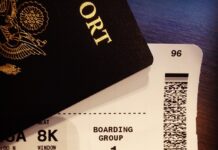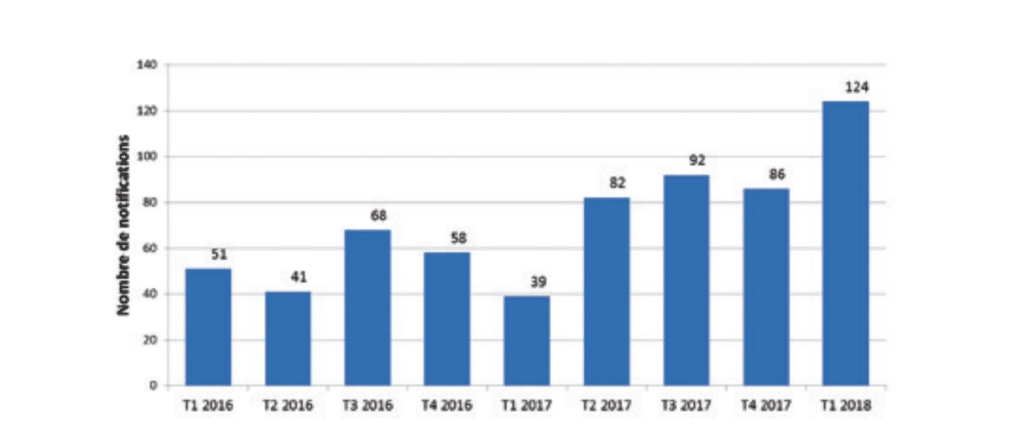Rude passengers who behave badly with other passengers or the crew, others who refuse to obey the instructions of the crew exist and sometimes you may even have had the misfortune to see some of them.
Of course crews are trained to manage this type of situation as well as possible, but did you know that this is a subject that is very well studied and codified with precise texts and rules concerning these types of behavior.
What is an unruly passenger?
The notion of unruly passenger is very precisely defined by the ICAO (International Civil Aviation Organization):
“ A passenger who fails to comply with the rules of conduct at an airport or on board an aircraft or who fails to follow the instructions of airport personnel or crew members and thereby disrupts good order and discipline at the airport or on board the aircraft.“
In English you will hear the term “Unruly Passenger” and in French they are called PAXI and the subject is covered by Annex 17 of the ICAO regulations.
Bad behaviour on the rise
Bad behaviors are increasing almost constantly and this is not a surprise: they are proportional to the increase in the number of passengers and follow in some way the democratization of air transport.
Here is the number of unruly passengers incidents reported by French operators per quarter from 2015 to 2018
EASA records similar trends at European level (number of incidents and rate per million flights)
And finally, IATA’s global figures show a slight improvement.
As far as the United States is concerned, which is where the vast majority of the cases that are talked about come from (which may not be representative of reality), I did not find a history over a long period of time, but over the year 2021, and given what it says, we will talk about it later.
But in the end, rest assured, you have little chance of encountering these types of people in flight: in Europe, there are 250 cases per million flights! IATA speaks of one incident every 1350 flights.
But the numbers vary greatly depending on the context, the nature of the road and the type of passengers. In France, on some destinations, it can be as high as 1 every 400 flights! And don’t forget that some British airlines wanted to ban the sale of alcoholic beverages on routes to destinations that were too festive: Ryanair would have the record for incidents involving drunk passengers.
What types of behavior are objectionable in flight?
But what behaviors are we talking about? If of course the facts are left to the discretion of the crew, they are clearly identified and documented by the ICAO with four levels of severity:
Level 1: disruptive behavior, low risk
- Use of foul or unacceptable language
- Unacceptable behaviour towards the crew
- Expression of dissatisfaction through inappropriate intonation or gestures
- (Belligerence or unreasonable requests, insistence on a denied request)
- Suspicious behavior (e.g., agitation, indifference, aloofness or unresponsiveness)
- Failure to comply with crew instructions or challenge authority
- Violation of a safety regulation
Level 2: physically aggressive behavior, moderate risk
- Physical assault of the crew: openly and vigorously hostile act with physical gesture/act or physical contact
- Obscene or lewd behavior toward the crew: overtly sexual, lewd or lascivious acts
- Verbal threats: threatening to physically harm the crew or another traveler while boarding or on board the aircraft
- Tampering with an emergency or security device on board the aircraft
- Deliberate damage to any part of the aircraft or any property on board
Level 3: endangering behavior, severe risk
- Threatening, showing or using a weapon
- Physical assault or sexual harassment with intent to injure (violence, threats, intimidation or disruptive behavior)
Level 4: Attempt to access the cockpit
- Attempted or unauthorized access to the cockpit
- Serious threat of serious injury or death in an attempt to take control of the aircraft
- Threatening, showing or using a weapon to enter the cockpit
- Attempted sabotage or sabotage of the aircraft
- An action that compromises the ability of the aircraft to fly or is likely to compromise flight safety
- Any attempt to gain unlawful control of the aircraft
Examples of misconduct
And in practice, how does this materialize? At a closer look it seems that this can vary a little according to the geographical areas but if we look at the French figures of 2017 we have
- 49% not respecting the smoking ban
- 14% refusal to obey safety instructions
- 14% alcohol-related aggression
- 9% non-alcohol related aggression
- 7% non-violent alcohol abuse
The causes can be cumulative (e.g. smoking + alcohol).
But in the end there are three main causes: smoke, aggression and alcohol and I wouldn’t be surprised if the last two are often linked.
Another behavior, in theory a passenger, has also appeared more recently: the refusal to wear a mask. In the United States in 2021, out of 5,981 incidents reported, 4,290 were mask-related (source FAA).
The EASA figures at European level are quite similar.
What does the unruly passenger risk?
Now the question is what the unruly passenger risks.
First of all, it is important to know that the crew is free to take the most appropriate immediate measures: warning, refusal to board, forced disembarkation, immobilization of the passenger or even diversion of the aircraft.
So much for the immediate measures taken on the spot, but there may then be legal sanctions: the airline or another passenger may file a complaint and the public prosecutor may also decide to take up the case.
ICAO is silent on the subject and leaves it to national legislation to determine the type of sanctions applicable.
In France, depending on the seriousness of the facts, this can range from a simple fine to a prison sentence when there is violence or, of course, hijacking.
An airline also has the option of blacklisting a passenger and banning him or her from flying on board for a certain period of time.
Are unruly passengers really punished?
In fact, this is the real question and we can think that many incidents have no follow-up because they are minor, judged excusable and the crews do not want to aggravate the situation on the spot.
As far as Europe is concerned, we have not found any figures on the follow-up of incidents. However, this is the case for the United States.
Faced with the increasing number of incidents, the USA has decided to institute zero tolerance in 2021. And we can immediately see the impact on the number of incidents.
To understand the effectiveness of this policy, one need only look at the evolution of the number of incidents that have led to investigations.
This tends to confirm that in the past a large number of incidents had no follow-up or ended with a simple warning.
In any case, the FAA has become much stricter since then, with a scale of penalties that is largely dissuasive, with fines of up to $35,000, no tolerance and an extensive public awareness campaign.
For example, a Frontier Airlines passenger who got into a fight with a flight attendant and other passengers over contraband alcohol he brought on board was fined 21,500 dollars for violating theprohibition of alcohol consumption imposed by the FAA and for refusing to wear a mask.
In another case, a passenger was fined $52,500 for attempting to open the cockpit door and punching a flight attendant in the face twice on a Delta Air Lines flight.
Another $75,000 fine was levied against a Delta Air Lines passenger who bit another passenger after trying to kiss him.
In 2021 the fines imposed by the FAA exceeded one million dollars but it seems that this is the region of the world where passengers are the most unruly.
Europe is also taking things seriously: in France the DGAC has conducted awareness campaigns and published very explanatory documents on the subject (from which some of the figures in this article are taken), you will also find many resources on this page.
Bottom line
Even if the number of incidents per flight is apparently low, it is too important, especially given the nature of the behaviors involved, for the authorities to do nothing, especially in the United States where the cases seem to be out of all proportion to what has been seen elsewhere (and in any case more publicized).
But the arsenal of sanctions exists, is constantly being reinforced and, what is new, there is less and less tolerance.
Even if we think that nothing can be done against the stupidity and the bad education of some people, it is up to each passenger to make sure that a flight goes smoothly for all.
Image : Unruly passenger by Kues via Shutterstock
























